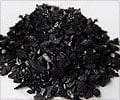A forest of 100,000 "artificial trees" could be deployed within 10 to 20 years to help soak up the world's carbon emissions, biomedical engineers have said.
According to a report by BBC News, the trees are among three geo-engineering ideas highlighted as practical in a new report by researchers form the Institution of Mechanical Engineers.The report includes a 100-year roadmap to "decarbonise" the global economy.
Lead author Dr Tim Fox said geo-engineering should not be viewed as a "silver bullet" that could combat climate change in isolation.
He told BBC News it should be used in conjunction with efforts to reduce carbon emissions and to adapt to the effects of climate change.
The research team studied hundreds of different options, but have put forward just three as being practical and feasible using current technology.
A key factor in choosing the three was that they should be low carbon technologies rather than adding to the problem.
Advertisement
"They could, within a relatively short duration, be moved forward into mass production and deployment," he said.
Advertisement
The report calls for the technology to be developed in conjunction with carbon storage infrastructure. he captured carbon dioxide could be stored in empty north sea oil wells.
Dr Fox said the prototype artificial tree was about the same size as a shipping container and could remove thousands of times more carbon dioxide from the atmosphere than an equivalent sized real tree.
"We very much believe that the practical geo-engineering that we are proposing should be implemented and could be very much part of our landscape within the next 10 to 20 years," he said.
Source-ANI
RAS









